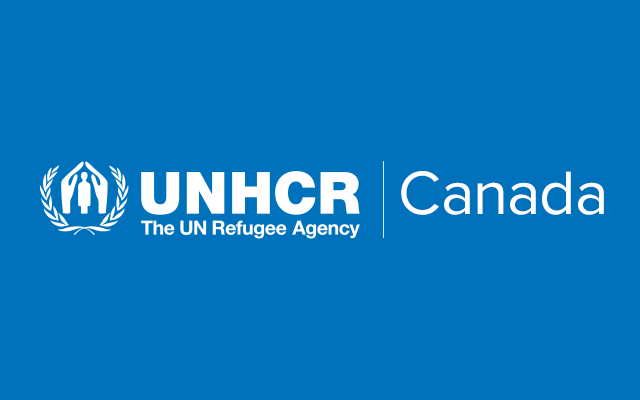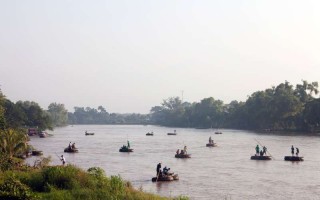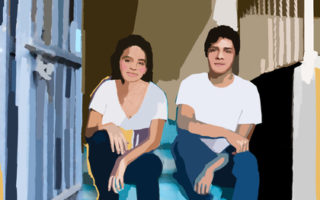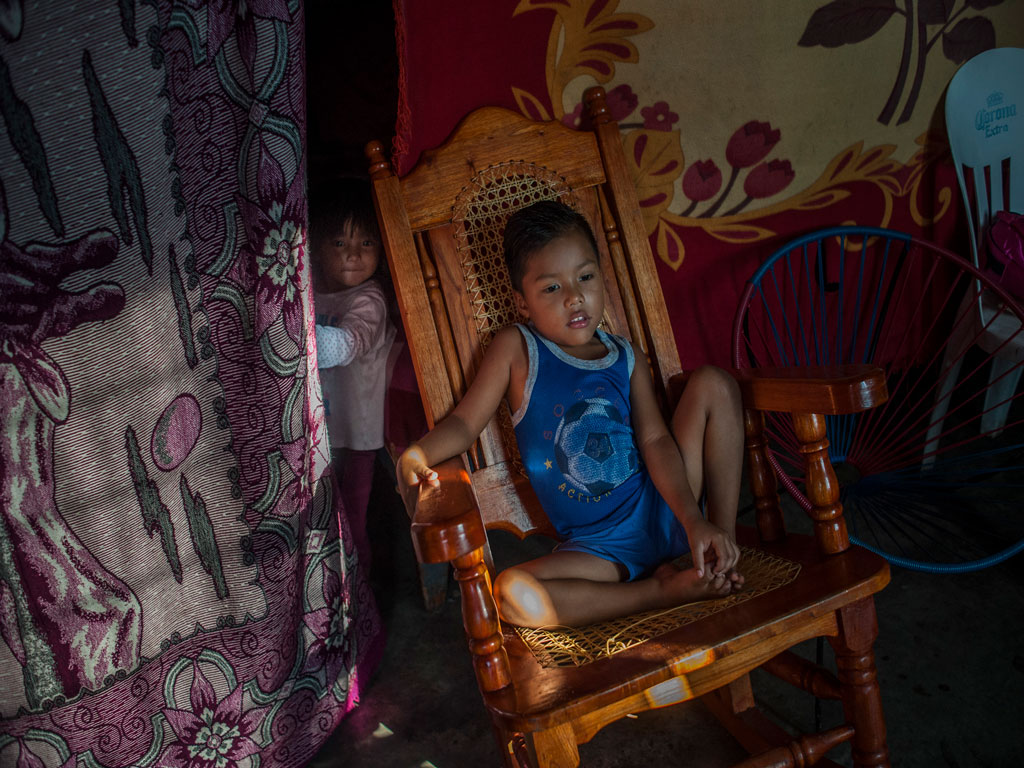
A young member of the Pérez family, who was forced to flee El Salvador, sits in his new home in the southern state of Chiapas, Mexico. © UNHCR/Daniele Volpe
By Jean-Nicolas Beuze, UNHCR Canada Representative
Last fall, I travelled to Honduras, meeting children sheltered in a project supported by UNHCR. To break the ice, I asked what you might ask any teen: “What’s your dream when you grow up?” To my surprise, quite a few kids responded, “I want to be a forensic pathologist.” I immediately thought of the influence of television series like CSI: Crime Scene Investigation or Bones, but I rapidly realized my mistake when Charleston , a 17-year-old girl, spoke up.
Charleston revealed that her life has been marked by the violent deaths of loved ones. At age two, her dad was killed by criminal gangs operating in her poor neighbourhood; 10 years later, her older brother was murdered.
She does not quite know the reason for these killings. What she does know, is that at age 14, she was “used by the gang”—her own words to describe being raped. It wasn’t long before she became pregnant. After giving birth, she was only given a few moments to name her newborn baby boy before he was taken away to an orphanage. To survive the trauma of the separation and the repeated sexual abuse, she began sniffing glue. Hoping to reach safety, she began travelling across Central America.
In desperation, Charleston thought she could flee to the US, where her aunt and uncle lived. “What made you decide to leave the street and escape from the gang?” I asked. And again, her response was linked to death. She told me about the recent deaths of two of her closest friends: one was killed for money, and the other because he crossed an invisible boundary between territories controlled by two different criminal gangs in the neighbourhood. At this point, Charleston realized that death was most probably her fate too.
She began travelling across Central America. Recounting how happy she was to escape the violence, Charleston told me that me she even enjoyed the trip, a break from her daily dose of fear.
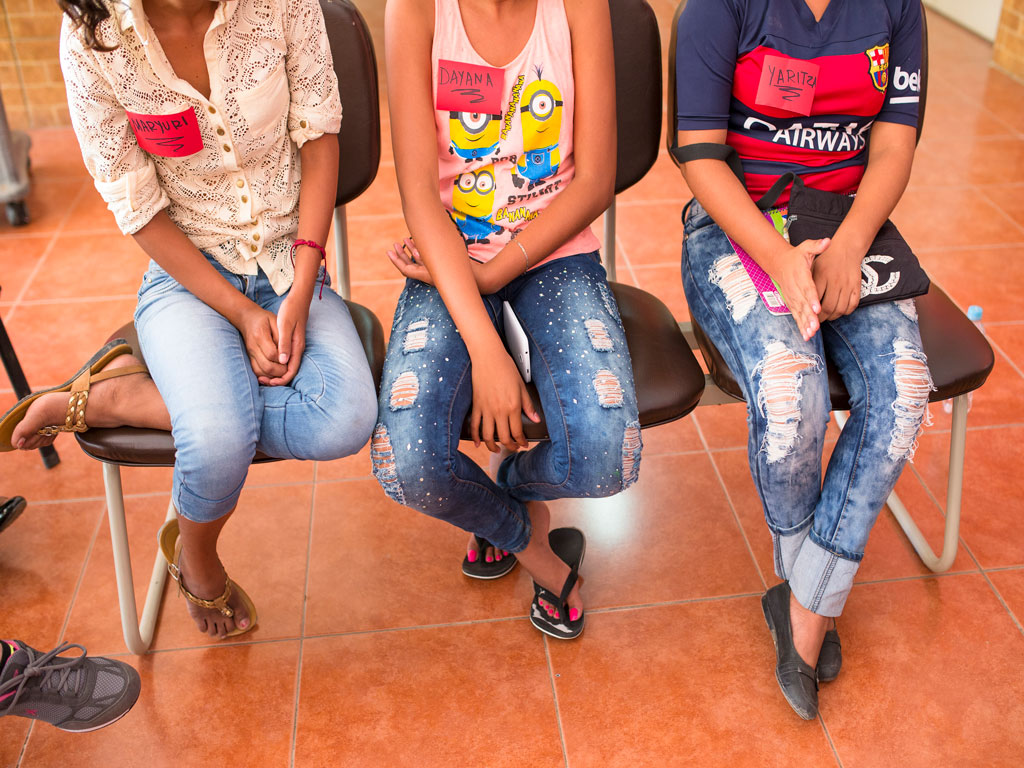
At a family community centre in downtown San Pedro Sula, HOnduras, three 16-year-old girls share their storeis of how they were forced to quit school because of threats and harassment by local gang members. © UNHCR/Tito Herrera
But she didn’t get far in her journey: stopped by a gang in Mexico, she was forced to return to Honduras, where sexual abuse, threats from the gang she had tried to escape from, and sniffing glue, once again became her daily routine.
UNHCR estimates that in 2016, because of threats of violence, intimidation, and extortion at the hands of the local mara or pandilleros (gangs), 146,000 refugees and asylum seekers from Guatemala, El Salvador and Honduras (known together as North of Central America or NCA), fled to neighboring countries—a seven-fold increase in four years. In the US alone, tens of thousands of children have arrived unaccompanied by an adult.
I don’t know if Charleston will realize her dream of becoming a forensic pathologist. What I’m pretty sure of, is that one day, she will be back on the road. Unlike many migrants who run towards the dream of the American life they see portrayed on television, Charleston will run because, as she told me candidly, she is constantly at the mercy of the gang that is “used to using” her.
We are now in the middle of winter, a time when Canadian snowbirds and vacationers flee the cold to spend their well-deserved holidays in warm, sunny Mexico. They may not realize the plight of the thousands of NCA children on the run, who seek refuge in Mexico and neighbouring countries. This is an almost invisible crisis.
We are working in Honduras, Guatemala, El Salvador and Mexico, committed to providing children with medical and psychological support, getting them back in school, and most important, helping them achieve the future they deserve. We need the world to recognize this tragedy; no child should have to run from violence.



